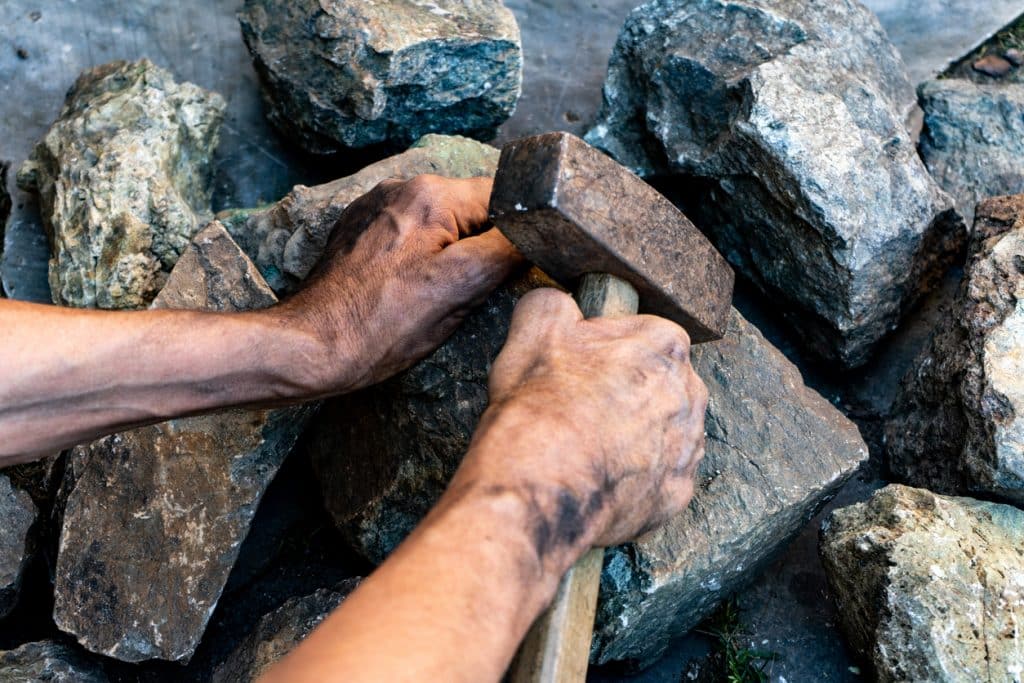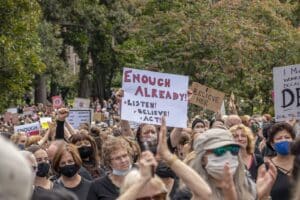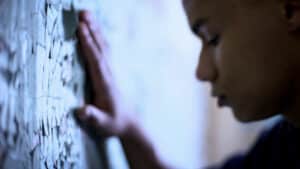
Jenan Taylor
28 July 2023
Anti-slavery campaigner Christine Carolan has long received phone calls at odd times.
They might come late at night from human trafficking victims asking for sanctuary.
They might come on a Friday afternoon from a schoolteacher. She had a student facing forced marriage. Was there any where they could get help?
There was, but often people who had been trafficked would baulk at it, Ms Carolan said.
Victims could only get help if they were willing and able to engage with criminal justice agencies first.
Ms Carolan’s organisation, the Australian Catholic Religious Against Trafficking in Humans, was among the advocates pushing for change.
They recently got it right.
Read more: In India, violence against religious minorities is on the rise. Why won’t Australia speak up?
Soon all trafficking victims might be able to access medical, financial, legal and cultural support without speaking to the police first. It might also including mental health counselling for victims, and perhaps even help with visa barriers they might face.
The new initiative would potentially be a game changer for many survivor-victims, Ms Carolan said.
It might help bring peace of mind for some exploited people, like the group of Pacific Islander seasonal workers that ACRATH has stood by since 2018.
For months, the labourers endured poor work conditions, including abuse and wage theft.
Language and cultural barriers, and their fears about their working permits and reprisal from their employer, kept them from speaking up about their exploitation.
University of South Australia researchers say being able to get help with visas might also enable victims too traumatised to deal with police, to access a stable income for accommodation or housing.
According to international and Australian monitoring agencies, trafficked people include migrant workers and students who have been forced into labour in agriculture, construction, tourism and hospitality, and domestic service.
To a smaller degree they are women and girls who have been forced into sex work. Others could be young people forced into marriage.
The Australian Red Cross, who helps administrate the government’s support program, said its crime-focused nature made gauging the scope of the human trafficking problem harder.
Read more: Missionaries urge Australians to remember Congo
Typically, only one in five victims are able to be identified through this program, the Red Cross said. The idea of dealing with law agencies first, often dissuaded people from seeking help altogether.
Many were just too frightened, and would turn to church groups and community organisations for help instead, Ms Carolan said.
Usually, people were worried about reprisals against their family, their immigration status, or they believed the couldn’t trust police.
“I’ve heard from emergency room staff that there’d be some survivors who’d sustained physical injuries from their traffickers sitting there in pain and terribly distressed because they were not open to starting a conversation with police,” she said.
Learning victims’ experiences sparked ACRATH’s determination to combat slavery, and the exploitation of women, in particular.
It also drove the organisation to form ties with other equally concerned clergy, churches, civil society and government groups.
Read more: Anti-violence activists aim for cultural change
These included the former dean of St Paul’s Cathedral Bishop Mark Burton, the Australian Muslim Women’s Centre for Human Rights, and The Salvation Army.
Some banded together more formally with ACRATH to call for change.
That included lobbying for an independent federal anti-slavery commissioner, and for aid pathways to be decoupled from law enforcement processes.
Seventeen years on, they’re celebrating the federal government’s decision to finally trial a wider support path for trafficked persons.
Under an 18-month pilot initiative a yet-to-be-decided community organisation will expedite the referral of victims to the Australian Red Cross support program.
Trafficking program lead Lina Garcia-Daza said the initiative would also improve law enforcement agencies’ chances of being able to prosecute slavery offences.
If survivors felt comfortable about the process, there was a bigger chance they would be a lot more engaged about contributing to criminal investigations, Ms Garcia-Daza said.
Ms Carolan believes joining with other ecumenical, multifaith and community groups and individuals, helped get the project across the line.
“We didn’t try to do something on our own,” she said. “It’s so much more powerful to link arms with people.”
Now ACRATH and its allies want to make sure the pilot program works and becomes a permanent part of the anti-slavery package.
But there was much more to be done, yet.
“It’s important for churches, and especially churches where there are recently arrived communities to challenge people to be aware of human trafficking and what regulations are in place,” Ms Carolan said.
For emergency help, please call 000
To get free, legal advice please visit antislavery.org.au/free-legal-services/
For help with a forced marriage situation, please visit mybluesky.org.au/
For more faith news, follow The Melbourne Anglican on Facebook, Twitter, or subscribe to our weekly emails.






